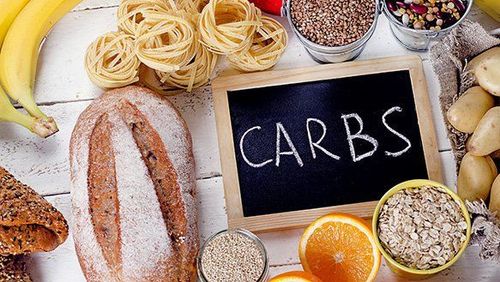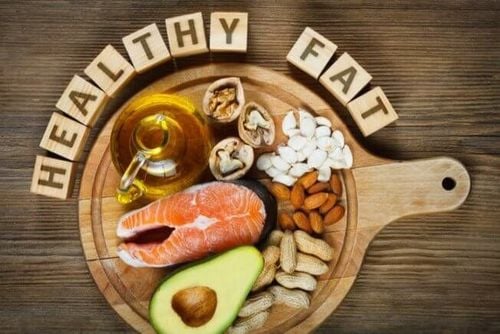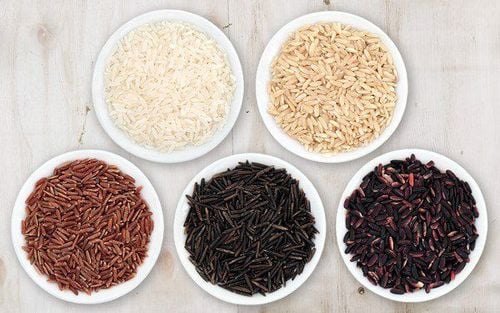This is an automatically translated article.
Essential nutrients for the body include macronutrients and micronutrients. So what are macronutrients, and what are their health effects?
1. What are macronutrients?
Macronutrients are substances that the body needs in large amounts to serve growth and development goals. At the same time, it is also responsible for compensating for damage, creating energy for life activities. Macronutrients include: Energy-producing macronutrients and non-energy-producing macronutrients.
2. Energy-generating macronutrients
2.1 Carbohydrates
Carbohydrates (including starch, sugar, fiber) are the main source of energy for all body activities. Sugars include simple sugars (found in honey, sweet fruits), double sugars (lactose found in milk or sucrose found in fruit) and crystalline sugars (can spike blood sugar, so use sparingly). Starch is made up of many simple sugars such as potatoes, rice, corn, legumes, etc.In the diet, carbohydrates are converted to glucose and other monosaccharides. Carbohydrates will increase blood glucose levels, providing energy for the body.
Simple carbohydrates are made up of small molecules (mainly monosaccharides or disaccharides) that rapidly raise blood glucose levels. Complex carbohydrates, made up of larger molecules, raise blood sugar levels more slowly, over a longer period of time. Glucose and sucrose are simple carbohydrates; Starch and fiber are complex carbohydrates.
Carbohydrates with a high glycemic index can rapidly raise blood glucose to a healthy level, increase insulin, cause hypoglycemia and hunger, lead to excess calorie consumption and weight gain. Carbohydrates with a low glycemic index slowly increase blood glucose levels, reducing the risk of obesity, diabetes and its complications.

Carbohydrate thuộc những chất dinh dưỡng đa lượng
2.2 Protein
Protein is a component that helps the body grow and maintain the body's activities. The human body is composed of thousands of different proteins. Proteins are made up of amino acids. Out of the 20 amino acids, 9 are essential for the body. They cannot be synthesized but must be obtained from the diet.
Protein from the diet will be converted into peptides and amino acids. If the body does not get enough calories from the diet or stores fat, protein can be used for energy.
Protein requirements differ between age groups. Specifically, infants under 3 months of age have a daily protein requirement of 2.2g/kg. For 5-year-old children it is 1.2g/kg and for adults it is 0.8g/kg.
2.3 Fats
Fat is essential for the formation of nerve cells, blood formation, body immune support, hormone production, good for heart function, formation of the body's protective layer under the skin,. .. Fats include fats and oils. Fats derived from animals such as lard, beef,... Oils from plants such as soybean oil, olive oil,...
Fats provide the body with saturated fat and unsaturated fat peace. The amount of saturated fat that the body consumes should only be about 30% of the total daily fat intake (to avoid raising blood cholesterol). In the group of polyunsaturated fats, there are 2 groups of essential fatty acids: Omega-3 (found in fatty fish) and Omega-6 (found in some vegetable oils). A healthy diet will have a ratio of 4 Omega-6: 1 Omega-3.

Chất béo rất cần thiết đối với sự hình thành tế bào thần kinh
3. The group of macronutrients that do not produce energy
The group of macronutrients that do not produce energy includes:
Mineral elements: Sodium, potassium, calcium, phosphorus, magnesium,... are macronutrients that the body needs in large amounts every day. day; Water: This is the main component of the diet although little attention. The demand for water is about 2,500ml/day. Needs may change when you have a fever, physical activity or with changes in climate, humidity,...; Fiber: There are two types of fiber: soluble fiber (partially digested by intestinal bacteria) and insoluble fiber (indigestible). Nuts, beans, and whole grains contain both types of fiber. Fiber is essential for the digestive system, helping to limit the risk of constipation and diarrhea. It also reduces the risk of rectal cancer. In order for the body to be healthy, each person needs to be provided with a full range of macronutrients and micronutrients from the daily diet. Good eating habits are a solid foundation for physical and mental health, against foreign pathogens.
In addition, you can also supplement nutrition through functional foods and should choose types of natural origin that are easily absorbed, do not use many types at the same time or continuously change the types of functional foods. .
For children to be healthy and develop well, it is necessary to have a nutritious diet in terms of quantity and quality balance. If children are not provided with adequate and balanced nutrients, it will lead to diseases of excess or lack of nutrients, which adversely affect the comprehensive development of children in terms of physical, mental and motor skills.
Children who do not eat properly are at risk of micro-mineral deficiency causing anorexia, growth retardation, malabsorption,... If they notice the above signs, parents should supplement their children with products. The supplement contains lysine, essential micro-minerals and vitamins such as zinc, chromium, selenium, and B vitamins to help fully meet the nutritional needs of children. At the same time, these essential vitamins also support digestion, enhance nutrient absorption, help improve anorexia, and help children eat well.
Parents can learn more:
Signs of zinc deficiency in children
Micronutrient deficiency and failure to gain weight in children













